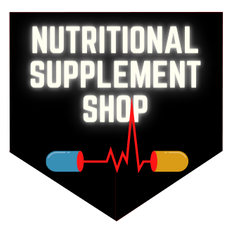Are you curious about the potential healing properties of BPC 157 in Canada and Australia? Known for its benefits, such as enhanced wound repair and improved gut health, this synthetic peptide is gaining attention. The regulatory status of BPC 157 in these countries is unclear, and its legality for human use is uncertain. However, some people still manage to import and use it without issues.
Despite these uncertainties, some people report successfully importing and using BPC 157 without issues. This article will guide you through its usage, regulations, and research trends in both countries. Keep reading to uncover how BPC 157 can impact your well-being.
Key Takeaways
- BPC 157 is a synthetic peptide that supports wound healing and gut health. It is becoming popular in Canada and Australia despite unclear regulations.
- In Canada, BPC 157 falls under Health Canada's Food and Drugs Act, but it has not been authorized for human use.
- In Australia, the Therapeutic Goods Administration (TGA) restricts BPC 157, allowing it only for therapeutic use with special permission.
- Despite restrictions from organizations like the World Anti-Doping Agency (WADA), fitness influencers continue to promote it.
- Research shows promising results for tissue healing and recovery. However, researchers need to conduct more human trials to confirm long-term safety.
Overview of BPC 157
BPC 157 is a synthetic peptide consisting of 15 amino acids. Known for its powerful healing properties, it promotes tissue repair and supports recovery from various injuries.
Chemical Structure
BPC 157 is classified as a pentadecapeptide with a molecular weight of 1419.53552 g/mol. Its unique structure allows it to stimulate angiogenesis. This process forms new blood vessels, aids tissue repair, and promotes gut health.
General Benefits
BPC 157 is well-known for speeding up wound healing, improving gut health, and helping with recovery from muscle and ligament injuries. It has shown promise in treating conditions like Crohn's disease and stomach ulcers, but larger human studies are still needed.
Researchers are also exploring its potential to boost brain health, especially for treating traumatic brain injuries (TBI) and other neurological conditions.
BPC 157 Use in Canada
Regulatory Status
Canada considers it a research chemical and falls under Health Canada's Food and Drugs Act. They do not approve it for human use. While many people ship peptides to Canada without issues, it remains an unregulated substance in the country.
Popular Applications
BPC 157 has several reported uses in Canada:
-
Muscle and Ligament Regeneration: Fitness enthusiasts use it to aid muscle recovery and heal injured ligaments.
-
Gastrointestinal Health: It has shown promise in managing conditions like Crohn's disease and promoting gut health.
-
Wound Healing: It is popular for accelerating recovery from skin injuries and surgery.
-
Pain Management: It may help reduce inflammation and manage chronic pain, including arthritis.
-
Brain Health: Early research suggests it could support recovery from brain injuries.
BPC 157 Use in Australia
Regulations
Australia's Therapeutic Goods Administration (TGA) restricts BPC 157, classifying it as a prohibited substance. However, people may obtain it for therapeutic use with special authorization. Despite the strict regulations, some individuals import the peptide without major issues.
Applications
In Australia, it is studied for:
-
Muscle and Collagen Regeneration: Popular among bodybuilders and athletes for muscle repair.
-
Gastrointestinal Issues: BPC 157 may protect the gastrointestinal tract and treat inflammatory conditions like Crohn's disease.
-
Brain Health: Research explores its potential to improve recovery from brain injuries.
Research and Development Trends
Research on BPC 157 in both Canada and Australia has focused on its tissue-healing properties. However, studies mostly rely on animal models, and there is a need for more human trials. In both countries, the peptide is gaining attention for its potential role in treating gastrointestinal issues and promoting recovery from injuries.
BPC 157 Products
Capsules
BPC 157 capsules are popular for their regenerative benefits, but their availability depends on local regulations. Users report improved wound healing and recovery from injuries.
Topical Cream
Topical forms of BPC 157 can be applied to injured areas to promote healing and collagen formation. However, studies on its effectiveness in this form remain limited.
Conclusion
The regulation of BPC 157 in Canada and Australia remains unclear. However, it continues to attract interest for its potential healing benefits.
While some people report successfully importing and using the peptide without issues. There should be more research is needed to confirm its safety and efficacy for human use. As regulations evolve, BPC 157 may become more widely accessible for therapeutic purposes.




